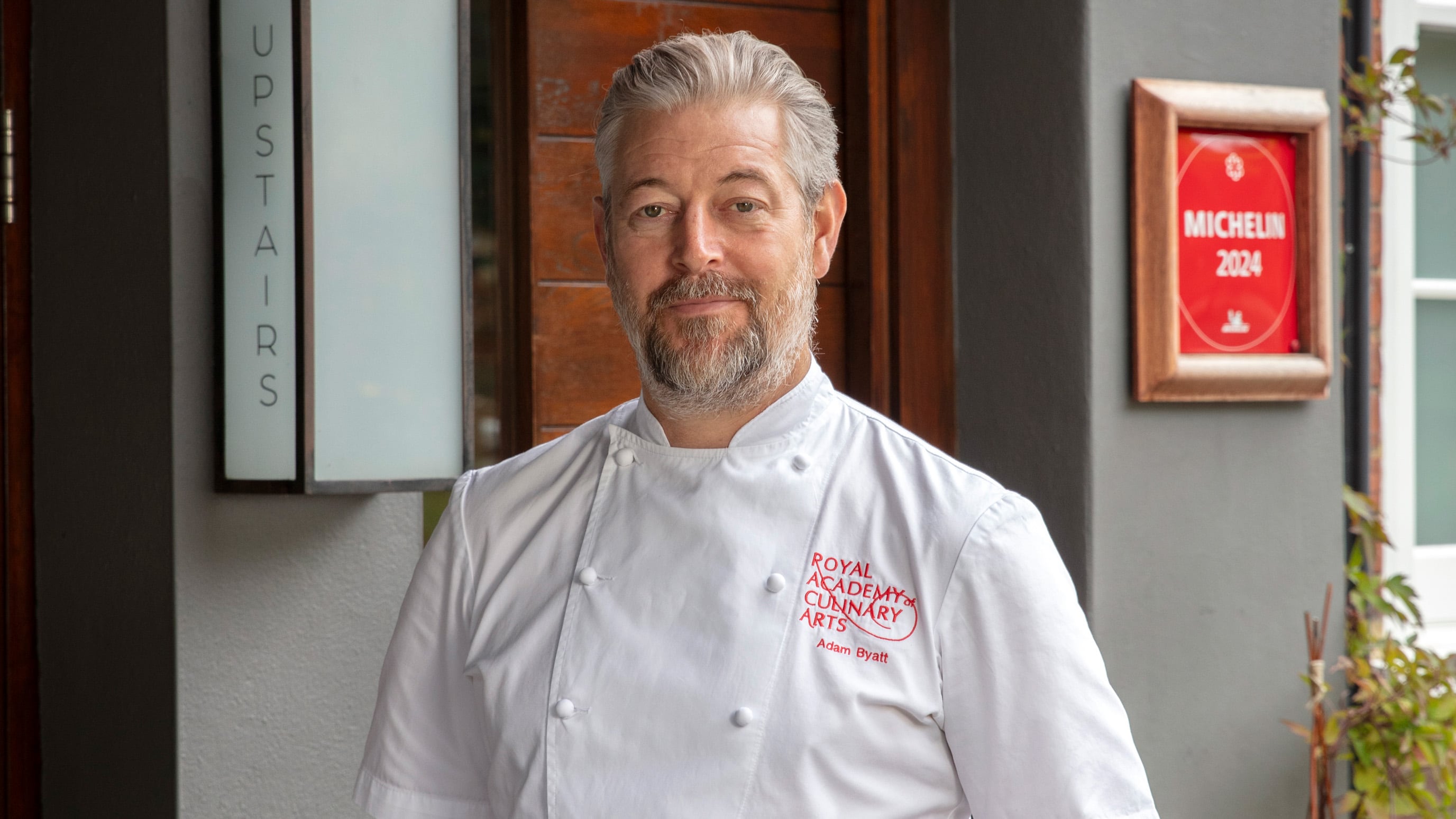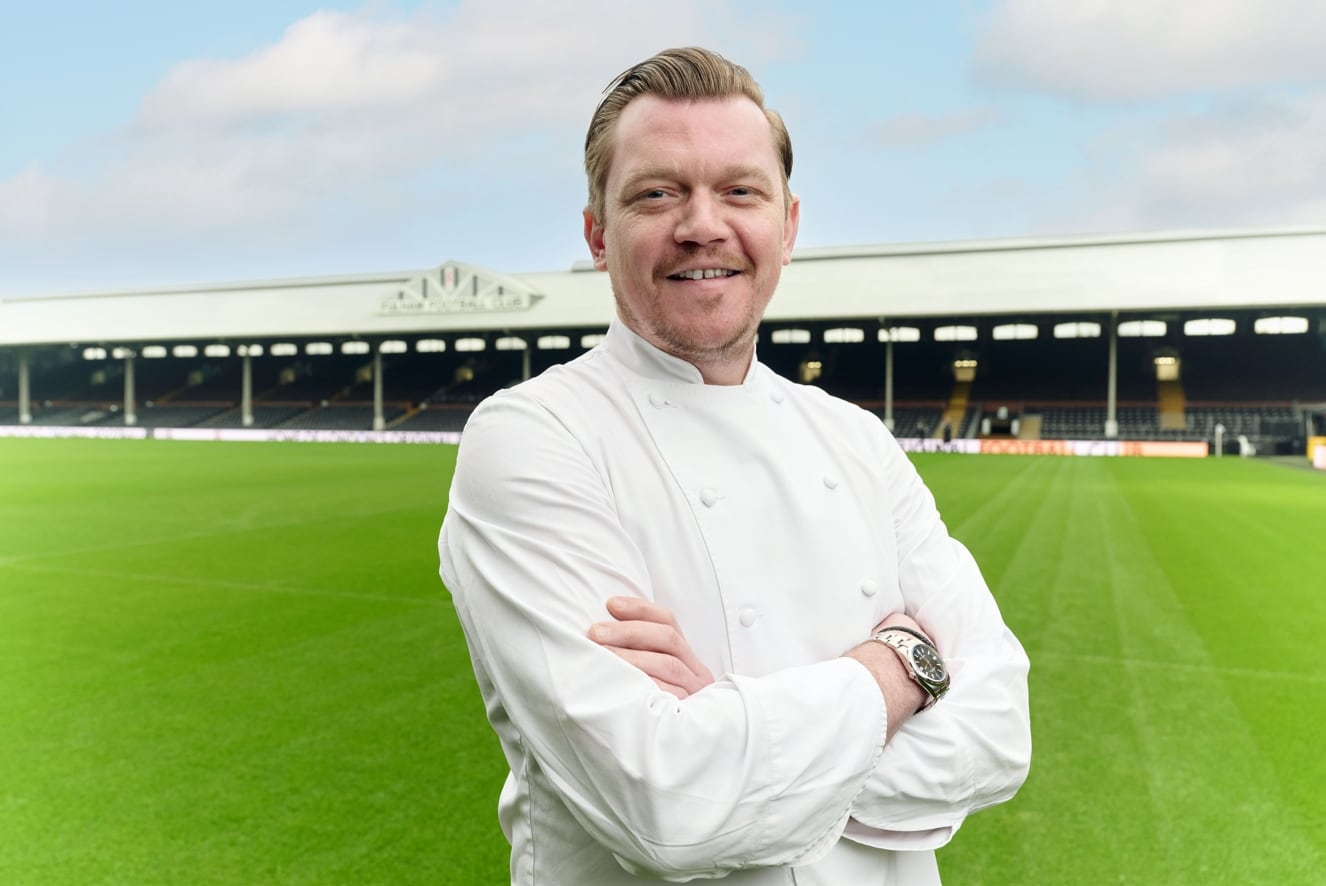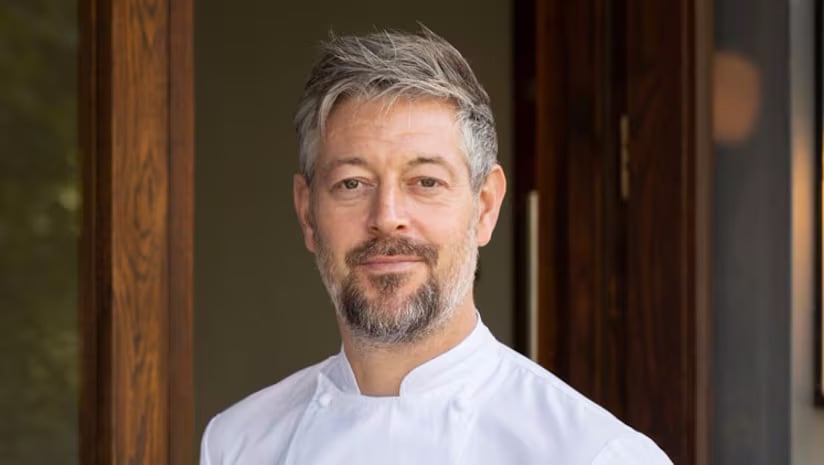Adam Byatt is watching a squad of high-vis-clad council workers prepare to dig up the pavement outside his Clapham restaurant. It’s around 11am so it seems inevitable the drilling will commence just in time to provide the soundtrack to Trinity’s fully booked lunch service.
But Lambeth Council isn’t stopping there. In the open kitchen behind him, his longstanding right-hand man Harry Fitzpatrick is patiently fielding questions from two EHO inspectors about the finer points of the Michelin-starred restaurant’s grease disposal procedure.
As recipes for a morning go, it’s not the most appetising. In fact, it would be enough to push most chef-patrons over the edge. But Byatt appears unflappable.
“I’m as happy and calm as I’ve ever been in this industry,” he says, before pausing the interview to ask his maître d’ to see if the workmen might be distracted from their Kangos with a cup of tea.
“My work-life balance and mental health are the best they’ve ever been too, despite having more going on than ever,” he continues. “I put it down to exercise and not worrying about the things I can’t control. These days, I only worry about what I’m responsible for - namely my family, my business, and the people who work for me.”
The chef isn’t exaggerating about having a lot on his plate. He currently oversees three other restaurants alongside his nearly 20-year-old flagship which, unusually for a UK Michelin-starred venue not attached to a hotel, is open for lunch and dinner seven days a week. These are upscale Mayfair spot Charlie’s, and the more casual Bistro Union and Upstairs at Trinity, both in Clapham.
Byatt is also now chair of the Royal Academy of Culinary Arts, having taken over from John Williams last summer. The appointment marks a full-circle moment for the 49-year-old, who was one of the first young chefs enrolled on the organisation’s Specialist Chef Course and trained under Williams at Claridge’s.
“It was always the hope that a chef from the course would end up chairing the Academy, so it’s mission accomplished. It wasn’t a role I was expecting or ready for, but when John asks you to do something, you do it.”
Byatt is now looking to modernise the organisation, which promotes culinary excellence and runs several high-profile initiatives including Adopt a School, the Annual Awards of Excellence, and the notoriously tough chef skills test, the Master of Culinary Arts.
“The Academy has been around a long time. There are people there from a different generation. It’s important we’re respectful to them, but we also need to ensure the organisation stays relevant, and that means bringing in new, more diverse blood.”
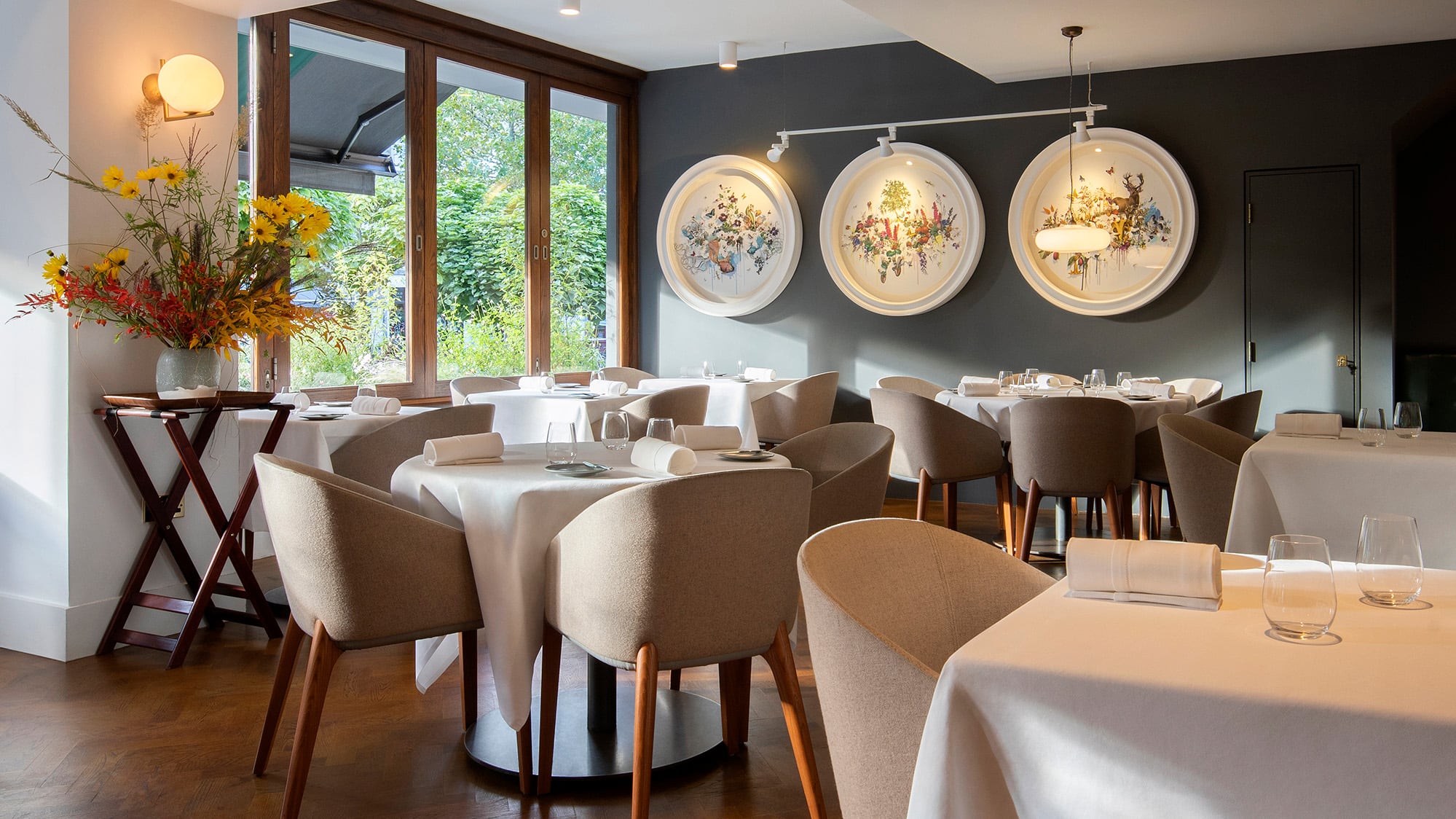
Pier pressure
Yet at the top of Byatt’s to-do list is Brasserie Constance, which is set to launch this summer just across the river, within Fulham FC’s newly built Fulham Pier development. It’s not an obvious fifth restaurant project for the chef. He doesn’t do football (“I have too many other things to think about in my life”) and the restaurant will be operated by contract caterer Sodexo.
“Other chefs will probably look at it and say I’ve got no skin in the game. But I do, because I have my reputation to think about and I’m putting it on the line with this project,” says Byatt, who is overseeing the restaurant on a consultancy basis as its director.
The senior team at the modern British brasserie - comparable in size to Charlie’s, with around 150 covers across a restaurant and bar - is largely made up of Trinity alumni, except for head chef Charlie Crote. Crote cut his teeth at The Ritz under Williams and was most recently head chef for Patrick Powell at The Midland Grand. “He has a similar mindset to my other head chefs. He’s young, hungry and a strong leader who understands classical French gastronomy.”
Overlooking the Thames, the restaurant is inspired by famed florist, cookery writer and educator Constance Spry. Along with fellow cook and close collaborator Rosemary Hume, she created Coronation chicken in 1953. Giving the restaurant this distinct, overtly feminine personality (the room will be festooned with flowers courtesy of his florist wife Vicki) seems at least in part designed to underscore that this isn’t a restaurant in a football stadium, but rather a standalone destination that just happens to be connected to one.
Of particular interest to Byatt is that Spry put a British twist on classical French cooking. “She was a fabulous writer. Her books have informed the narrative of the restaurant and have been a north star for me and the team when developing the food.”
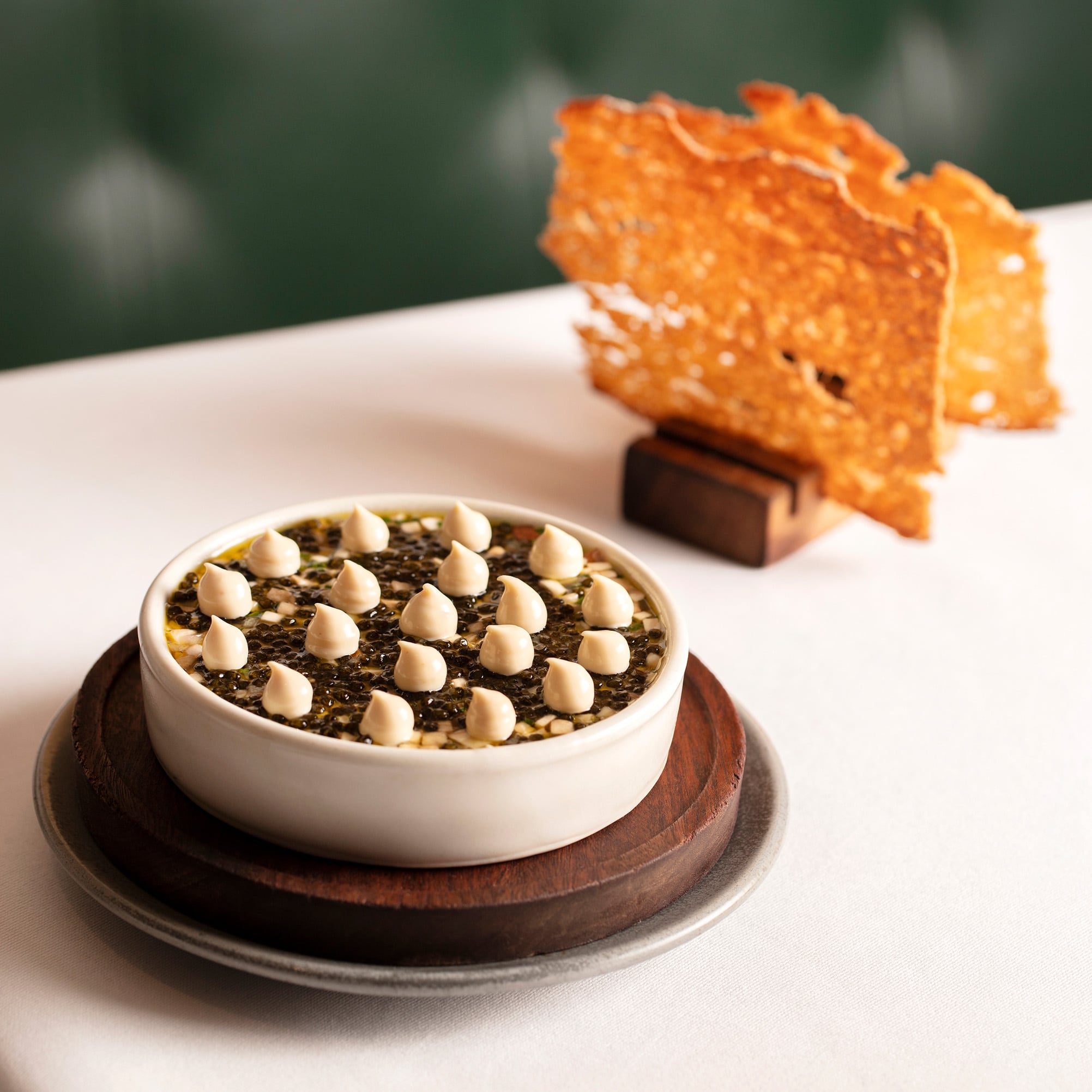
A proper brasserie offering
The menu isn’t yet finalised, but Byatt gives me a quick look at a mock-up on his phone. Split into sections including snacks, starters, salads, omelettes, shellfish, large sharing dishes, mains, and vegetable sides, it’s a proper brasserie offering that fuses the chef’s love of French technique with quintessentially British flavours.
Constance would no doubt approve of dishes such as Coronation chicken pâté en croûte; mussels and cockles with cider and soda bread; roast skate wing with lime, lovage and capers; and whole chickens cooked in a custom-made clay pot in a hearty stew of barley and bread.
Pricing in London has got out of hand. We’re not going to fill [Brasserie Constance] if we only appeal to people with loads of cash”
The British theme will also extend to sourcing, though Byatt won’t be militant about it. “We’ll still use things like lemons and olive oil. I’d guess 90% of our ingredients will come from these shores, which is higher than at my other places.”
As things stand, Brasserie Constance is priced accessibly, considering both the chef behind it and its glamorous riverside location. Even better value can be found in Brasserie Constance’s daily plates, such as fish pie (Monday); toad in the hole (Wednesday); and breaded plaice with crushed peas (Friday).
Byatt says he’s borrowed from the playbook of the grand Parisian brasseries in offering a wide range of price points. “Pricing in London has got out of hand. I was chosen for this project because I understand neighbourhood restaurants in south-west London. The dining room here has 100 covers. We’re not going to fill it if we only appeal to people with loads of cash.”
Byatt is acutely aware that, despite its affluence, Fulham isn’t exactly known for its restaurant scene. “There are little pockets of brilliance, Brett (Graham) at The Harwood Arms, for example, but it’s a short list. That does concern me. One thing that gives me confidence is the resurgence of Chelsea (which is just east of Fulham) with places like Myrtle, Fantômas and Josephine Bouchon.”
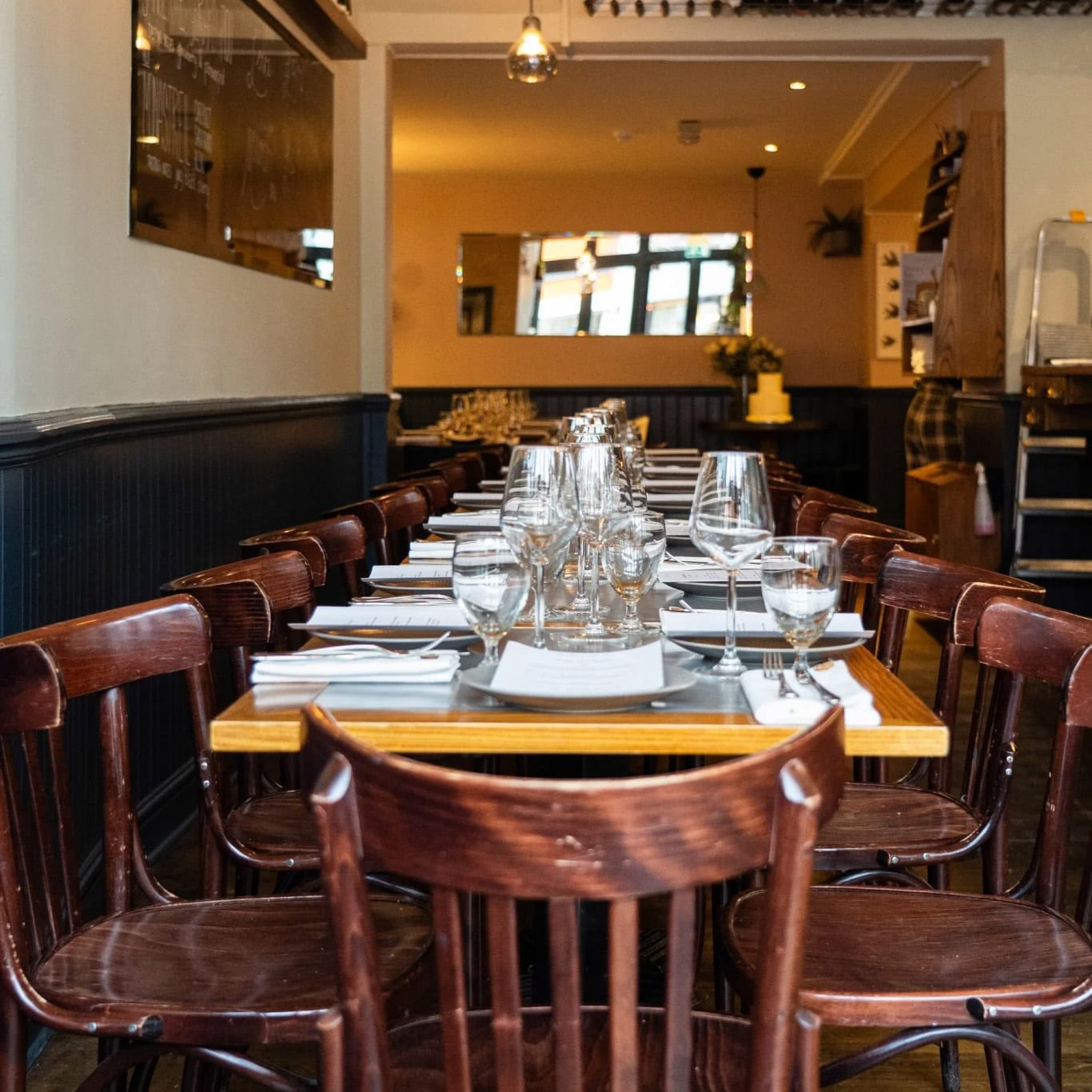
Never one to cut corners
Byatt oversees a diverse portfolio of restaurants that span a range of price points. The common thread between them is a focus on proper classical cooking.
“I’ve never been one to cut corners,” he smiles. “In the very early days of Trinity, my head was turned a few times, but I quickly realised that fads like water baths don’t usually result in food that is a pleasure to eat. Cooking is a creative craft. I feel very fortunate to be able to make tangible things and surround myself with like-minded people.”
The cooking at Trinity, which offers a four-course menu priced at £140 for dinner and £90 for lunch, is light and contemporary but grounded in classical technique, with Byatt taking particular satisfaction in culinary processes and dishes that require a high level of skill to perfect.
Byatt believes, quite correctly, that this sort of cooking is in the midst of a major comeback. “We’re at the beginning of a new era of French gastronomy. Young chefs are cooking more classically. There are beurre blancs popping up all over the place. That’s a beautiful thing.
“People are realising that pleasure in gastronomy is derived from careful, layered cooking. It’s also down to guests wanting food experiences they can’t have at home. People are willing to pay for craftsmanship and expertise.”
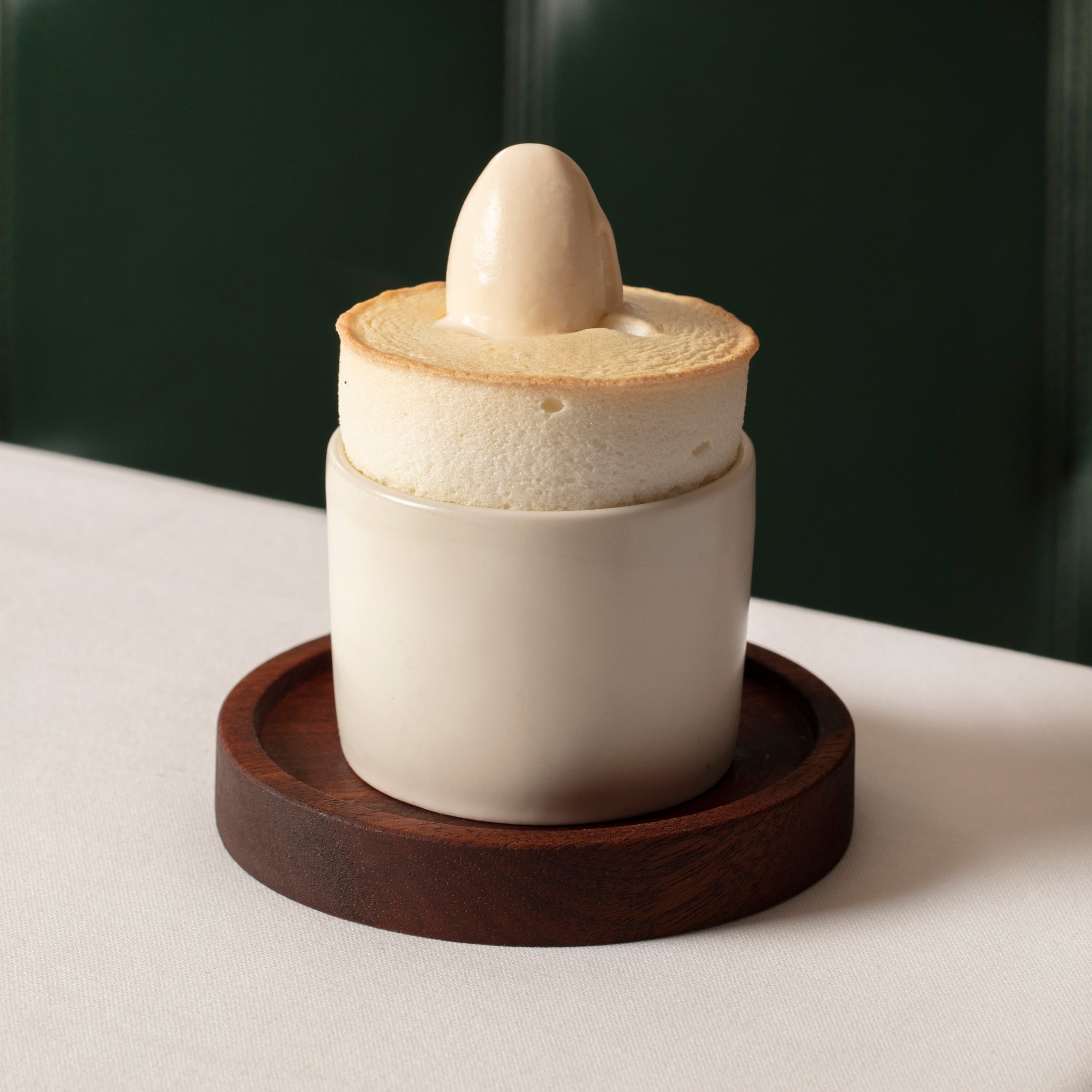
A finishing school for the UK’s best chefs
Byatt’s formidable repertoire and technical prowess go some way toward explaining why Trinity has become a finishing school for some of the UK’s best chefs, with an impressive list of alumni that includes, but is by no means limited to, Graham Squire, Tom Sellers, and Angelo Sato, all of whom have gone on to earn Michelin stars (in the latter two cases, two stars).
Earlier this year, Byatt’s ability to nurture the next generation of culinary talent was recognised by Michelin in the form of the Chef Mentor Award. Previous recipients include Michel Roux Jr and Phil Howard, with whom Byatt worked in the early days of The Square.
“It was a big shock. In fact, it totally blindsided me. I’m grateful they recognised me, but I’m even more grateful that they recognise mentorship as an important part of the industry. I love to see young people succeed. There is no glass ceiling in this industry. People from humble backgrounds can do amazing things.”
One of Byatt’s most recent success stories is Aaron Potter, who opened Wildflowers to critical acclaim late last year. Potter first stepped into Trinity’s kitchen at just 17, joining as a trainee through The Academy’s Specialist Chef Course, and remained there for over a decade. “Funnily enough, he was the first person I took from that course,” says Byatt. “It’s amazing to see how far he’s come.”
Byatt recalls Potter’s early promise. “He learned incredibly fast and has an impeccable palate. He’s got great hands. I’d show him a dish, and he’d plate it perfectly the first time. There’s a real care in how he treats food.” Byatt also helped finance Wildflowers, which Potter opened with his partner in life and business Laura Hart.
There is no glass ceiling in this industry. People from humble backgrounds can do amazing things
“I’ve purposely stayed in the background, I want the spotlight on Aaron and Laura, because they’re brilliant,” Byatt adds. “I’m not involved in the day-to-day, but Aaron and I still speak regularly. The restaurant is absolutely flying. I couldn’t be prouder.”
While he doesn’t come across as pompous, Byatt takes his role as a mentor and industry leader more seriously than most chefs of his vintage.
“When I was coming up there were people like Pierre Koffmann, Raymond Blanc and Nico Ladenis. It doesn’t feel like there are that many obvious role models for chefs in their early 20s these days. If the industry is going to fix its many problems, we need more people that behave and run their restaurants in the right way.”
For Byatt, this extends to his online presence. “I don’t want to be putting stuff out that sends the wrong message to young people. How I cook, behave and dress is important. I have a lot of respect for this profession. For me it’s not about flipping a few pans and making a few quid. That’s not to knock other people. They can do what they want.”
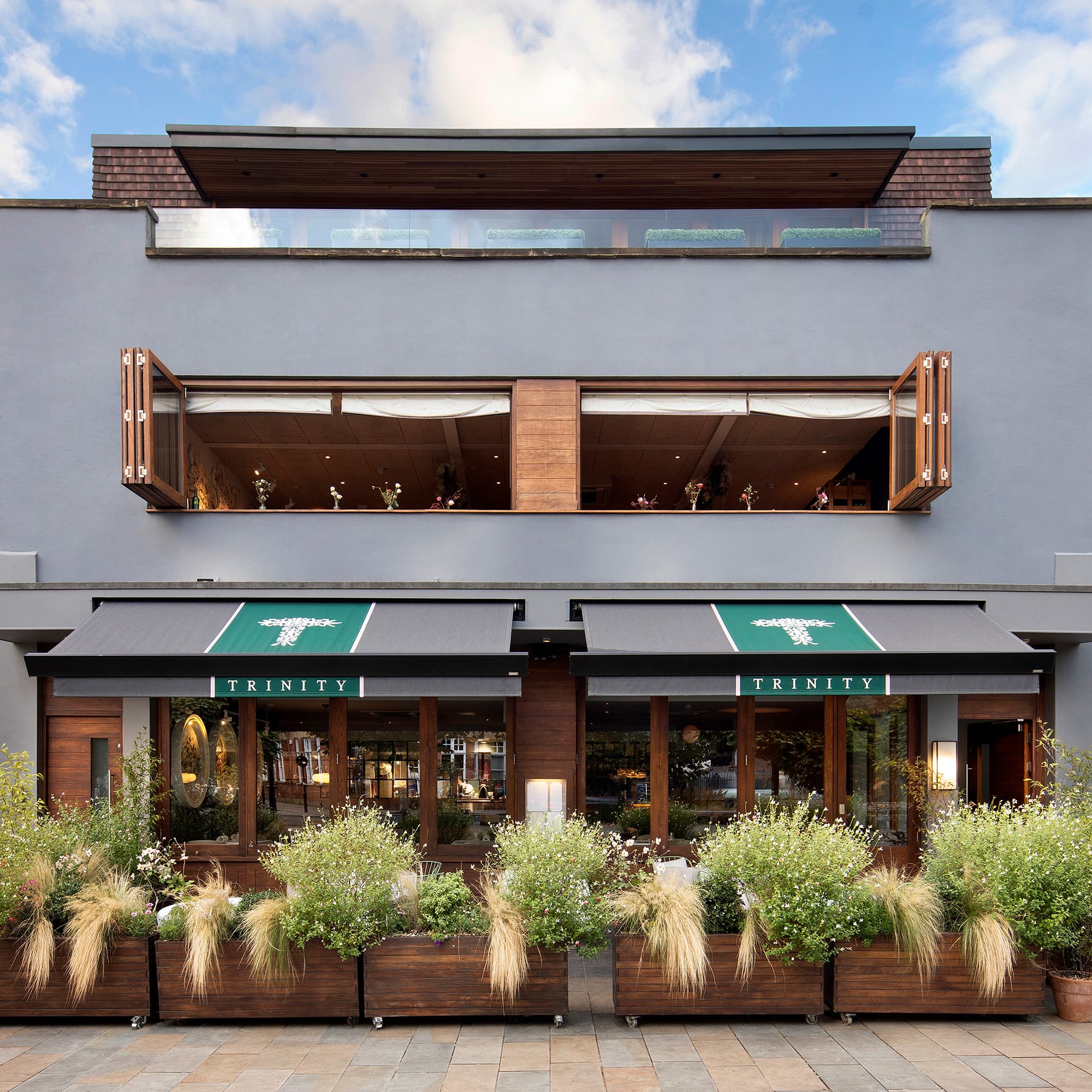
An unlikely social media star
As with his restaurants, Byatt’s considerable success on social media (he has 218,000 followers on Instagram) is largely down to his determination to do things on his own terms.
“I didn’t want to make dishes I wouldn’t serve at the restaurants or that took 30 seconds to cook. I’m a big believer that great food takes time, and I wanted that to come across in the videos. That certainly wasn’t the quickest route to success, but it’s worked out,” says Byatt, who switched from traditional restaurant PR to working with a digital marketing agency a few years ago.
A calm and authoritative counterpoint to the throwaway output of many chefs and content creators, truncated versions of Byatt’s videos perform well on short-form platforms like Instagram and TikTok, but they come into their own on YouTube, where longer run times are less of a concern.
Who would have thought that a 12-minute video of Byatt making quenelles de brochet (pike mousse), a dish most restaurants wouldn’t even consider putting on the menu, let alone attempt to promote on social media, would rack up 40,000 views and over 100 rapturous comments?
Other videos on his rapidly growing channel include a masterclass on whole goose butchery and an 18-minute deep dive into Trinity’s signature dish of pig’s head carpaccio with sauce gribiche, in which Byatt speaks eloquently about restaurant margins. Eating With Tod it is not.
“We brought in the digital marketing agency because I felt the way people were communicating about food and restaurants was changing. We’re nearly 20 years old now as a business so we need to stay relevant. I was probably a few years late, but that can’t be helped,” says Byatt, who now employs someone directly to oversee his social media output. Specialist software that tracks customers’ booking journeys shows that the investment is paying off.
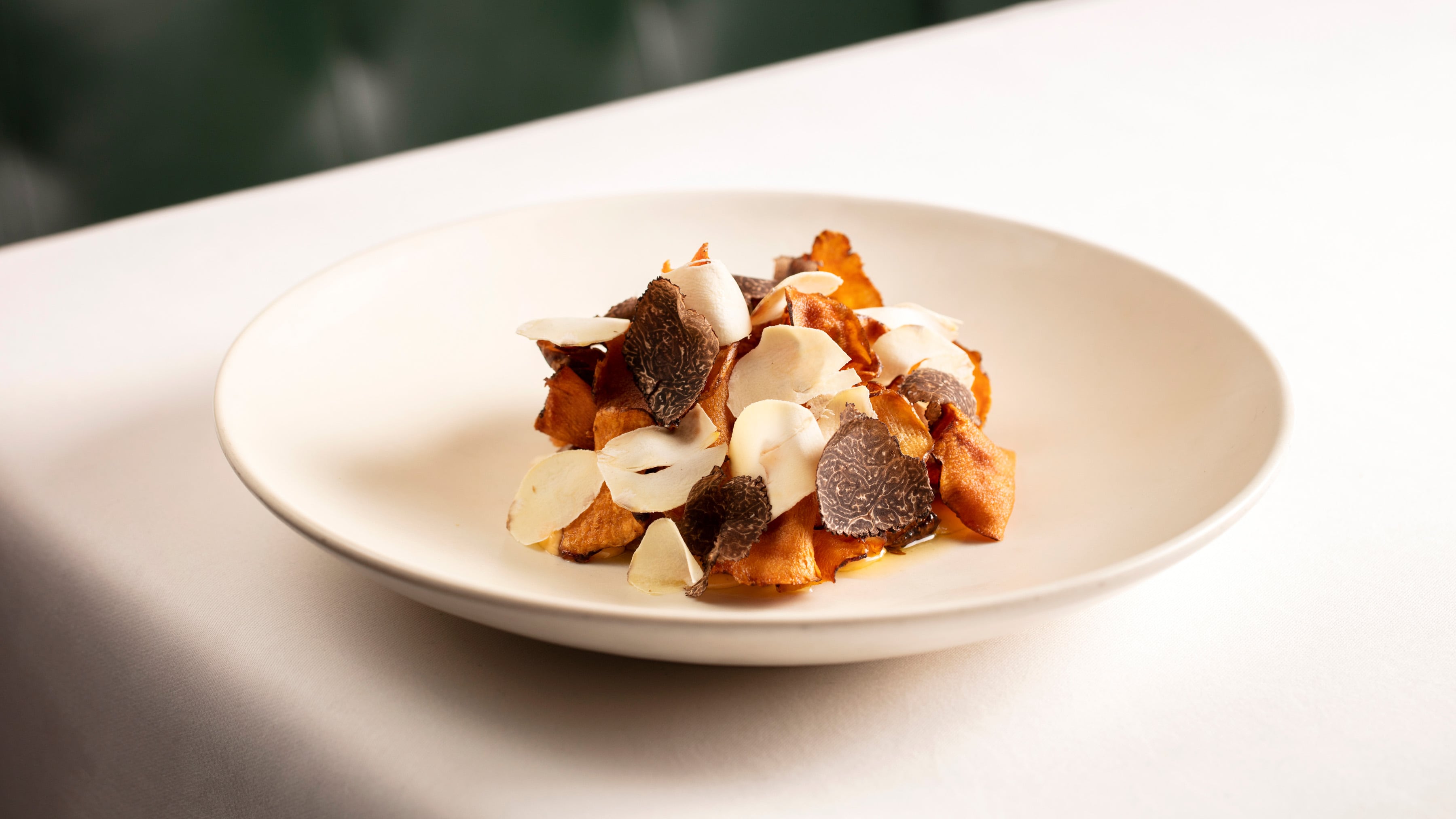
Succeeding in a tough trading environment
Business is strong for Adam Byatt, as indicated by his flagship restaurant operating 14 services a week - no small feat given the challenges currently facing the hospitality industry.
“It’s not doom and gloom here, and I don’t agree that the fine dining model is broken,” he says. “The top of the market is buoyant, as long as you’re delivering a great experience. With that in mind, we’ve raised our game at Trinity over the past few years. It can’t just be great. It needs to be excellent.”
Like many operators, however, Byatt acknowledges that the middle market is proving difficult. “People are either after an experience like Trinity or something much more casual,” he explains. “My biggest challenge right now is Bistro Union. We’re working on levelling it up and making it more of a special occasion spot.”
The Abbeville Road restaurant has taken a particular big hit from recent Government changes to National Insurance Contributions (NICs). “Without a shadow of a doubt, they’ve got it wrong. They’re inept. Rachel Reeves is going to punish this industry to the point where it’ll be unrecognisable in a few years.”
Most chefs who’ve reached the very top of this game show some element of neurodiversity. It can be a challenge, but it can also be a superpower
One of Byatt’s major concerns is the increasing cost of employing junior chefs. While he will always take on apprentices, he says he can no longer afford to hire commis or demi chefs de partie. “The salaries I’d need to pay just don’t work within the model anymore, and I know I’m not alone. It’s going to create a massive skills shortage five years from now.”
The NIC increase alone has knocked £160,000 off Trinity’s bottom line. Byatt says the business will survive it, but notes that the money would have otherwise gone towards developing staff or even launching a new venue.
“They just don’t understand how a restaurant works. It’s shameful how much they’re stifling growth.”
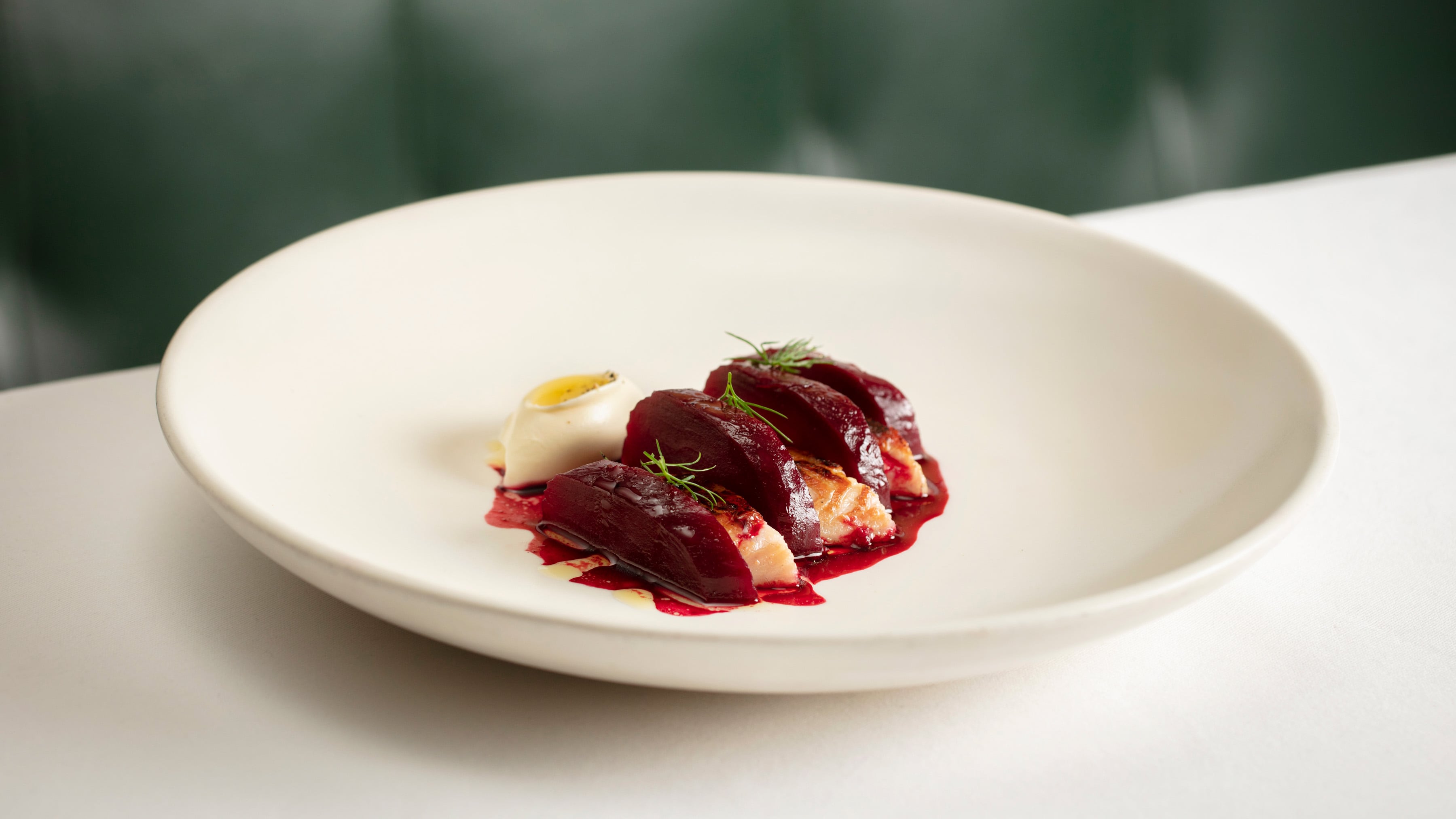
A family affair
A sour note, certainly. But Byatt instantly brightens when I ask him about his two children potentially following him into the industry. His 21-year-old son Jack has worked at Trinity on and off for the past decade and is now a sommelier at the restaurant, having recently completed his WSET Level 3 qualification.
Though clearly proud and happy to have him around, Byatt is careful not to place too much expectation on his son. “He’s an incredible young man who has hospitality in his veins. I don’t know if it will become a long-term career for him, but I’m glad he’s developing the emotional intelligence that working in restaurants provides.”
His 16-year-old daughter Rosie was diagnosed with autism (ASD) around five years ago. “She found school very difficult. Not so long ago, we were in a really tough place, but things are much better now that we’ve found a school set up for neurodiverse children. She’s a very special kid. She has a lot of challenges, but her creativity and the way she visualises things is incredible,” says Byatt.
“Several of my team clearly show signs of neurodiversity. It’s very common in this industry. In fact, most chefs who’ve reached the very top of this game show some element of neurodiversity. It can be a challenge, but it can also be a superpower.”
Byatt, whose house wine features a label designed by graphic artist Autistic Ian, with each bottle sold raising funds for The Autism Society, believes the restaurant industry could do more to support neurodiverse individuals in the workplace.
“We should be thinking about things like lighting and noise and running kitchens in a way that works for autistic people. For example, not giving them lots of different jobs at once. It can be life-changing for people like Rosie. She’s found sanctuary in cooking and the creativity of kitchens.”
Rosie is set to start in Trinity’s kitchen after her GCSEs and, if all goes well, will follow in her father’s footsteps by enrolling on the Academy of Culinary Arts’ Specialist Chef course. “I can’t think of anything better than coming into work and seeing your wife doing the flowers, your son serving the wine, and your daughter cooking in the kitchen. I feel very lucky.”


